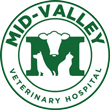Externship Program Overview
Program Purpose
The primary purpose of our externship program is to provide a realistic learning experience for veterinary students, although we may also extend this opportunity to undergraduate students looking for experience as our schedule allows. Preference will be given to fourth year veterinary students. The program is set up to run in two-week blocks.
Veterinary Hospital
- We are located 1.5 hours north of Sacramento off I-5 in the northern Sacramento Valley; 20 minutes west of Chico (a college town).
- 50% dog/cat and 50% dairy/beef cattle practice (with some small ruminant & swine).
- We service 13 dairies on a routine basis that range in size from 200 to 2000 milking cows.
- We also service 2 goat dairies, but service is limited based on economics.
- 5 doctor practice.
- Milk quality lab that cultures milk for mastitis pathogens.
- Assisted Reproductive Technologies are seasonal:
- Beef cattle – embryo flushing and transfer
- Sheep – laparoscopic AI
- Goats – transcervical AI
- Large and small animal ultrasound machines.
- In-house IDEXX CBC, Chemistry and Urinalysis machines, as well as a Zoetis Imagyst.
- Standard and dental radiology.
Extern Responsibilities & Expectations
What To Bring
- Coveralls – minimum of 2 pairs.
- Rubber boots.
- Clothes appropriate for farm work (blue jeans, T-shirt with scrub top and boots okay).
- Please bring scrubs or nice jeans and a polo shirt if you want to participate in small animal work.
- Stethoscope and a hemostat or towel clamp (if you have one) to hold OB sleeve on arm.
- Snacks and water if you need them: there may be up to a 6-hour span of time between when we leave the hospital and when we return.
- Lunch is normally taken between 1:30 and 2:30, however that will change daily.
- We will attempt to let you know the day before if lunch should be packed or if you will return to the hospital prior to lunchtime.
What To Expect
- Please park in the northeastern-most client parking spaces when you arrive.
- Often you will arrive prior to the office officially opening, so please meet the doctor by the “back” door on the west side of the building.
- You will be provided with an electronic key card to the back door on the first day that will allow you into the building.
- Mornings will typically start with a herd check that begins between 6 and 9 am.
- Gloves and OB sleeves will be provided for palpation.
- You will be provided with the opportunity to palpate on average at least 50 cows per day.
- Pace yourself based on skill level and experience.
- You are not expected to palpate as quickly as the doctors, but please do not lag too far behind us.
- Please do not spend more than 1 minute in each cow, as you will fatigue your arm muscles quickly.
- An ultrasound may be available to use if requested.
- After the first check we will either have another check or go on sick animal calls.
- Please note that in the summers, we try not to have routine procedures done in the afternoon due to the heat.
- Most dairy veterinary work is palpation/ultrasound.
- You will have the opportunity to perform exams on sick cows, review records, treatment protocols and spend time in the milk quality lab depending on interest level.
- Individual in-patient care is rare and not to be expected as most procedures are done on-farm.
- Although we will slow down the performance of tasks for your learning experience, please remember we must work at a pace to earn income, which is likely a faster pace than what you would experience on campus.
- We do not expect you to be available on weekends or evenings for emergency calls, but please let us know if you are interested in coming with us as we do take food animal emergency calls at night.
- The average number of night emergency calls per week typically ranges from 0-2.
- If you are a veterinary student, we will generally allow you to do most veterinary tasks as they arise if the client is agreeable; please take the opportunity to do them.
- While the focus of most students is on maximizing food animal practice exposure, you are welcome to spend as much time in the small animal clinic as you want.
- Photos are permitted in most circumstances, but client anonymity is paramount; please ask us prior to taking any photos.
- Please let us know what you expect to gain from this rotation- you will get out of it what you put in it!
How To Request Externship Opportunity
Interested students should contact Marie Ussery, RVT at mail@mid-valleyvet.com or call the office at 530-865-5634. Please include a CV or resume and specify a range of possible dates to complete the externship program.
RVT Student Internships
We welcome students from accredited Veterinary Technology programs seeking internship hours to complete their requirements. We believe that staff should be utilized to their fullest extent, so we currently employ five RVTs at our practice that are crucial to our day-to-day operations. Students can receive experience with RVTs in both small animal and food animal medicine depending upon their interests. Please see the “Externship” section above for a description of some of the services provided and equipment present at our practice.
To inquire about an RVT Student Internship, please contact Marie Ussery, RVT or Nicole Underwood, RVT at mail@mid-valleyvet.com or call the office at 530-865-5634. Please include a CV or resume with your inquiry and specify which semester you wish to do your internship.

